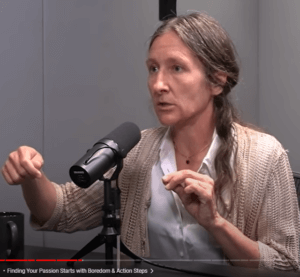
Dr Layne Norton: The Science of Eating for Health, Fat Loss & Lean Muscle | Huberman Lab Podcast #97
In a captivating episode of the Huberman Lab podcast, Dr. Layne Norton, a preeminent expert in nutrition and protein metabolism, shares profound insights on the mechanics of fat loss, the importance of protein, and the impact of dieting on metabolic health. This blog delves into some of the significant points raised during the discussion, providing a scientific examination and personal reflections on these topics.
The Role of Protein in Muscle Gain and Metabolism
One of the fundamental topics Dr. Norton addresses is the role of protein in body composition and metabolic health. As Dr. Norton explains, “Protein is about a 20% to 30% TEF. So if you eat calories from protein, you’re only netting 70 to 80.” This indicates the thermic effect of food (TEF), which is the energy expended to digest, absorb, and assimilate nutrients, is highest with protein. This is critical because it suggests that high-protein diets can increase daily energy expenditure, assisting in fat loss while supporting muscle synthesis.
Scientific Deep Dive: How Protein Supports Lean Muscle Mass
Proteins are pivotal not just for muscle gain but for overall metabolic health. They are composed of amino acids, which are the building blocks for muscle and other vital body tissues. During digestion, proteins are broken down into amino acids that are then used to build and repair muscles, especially after exercise. This process is enhanced by the high TEF associated with protein, making it metabolically costly compared to fats and carbohydrates.
Moreover, proteins regulate appetite and satiety through their impact on hunger hormones like ghrelin and GLP-1. Studies suggest that a higher protein intake leads to prolonged feelings of fullness, which can be beneficial in managing caloric intake and preventing overeating. Thus, incorporating adequate protein into your diet is essential for maintaining a healthy body composition and metabolic rate.
The Complexity of Energy Balance
Dr. Norton’s discussion on energy balance sheds light on the intricate dance between caloric intake and energy expenditure. “People use the term calories in, calories out, and they say, well, that’s way too simplistic. I’m like, if you look at what actually makes up calories in, calories out, it’s actually very complicated,” he states. This complexity arises from the various factors that influence how calories are processed and utilized by the body, including metabolic rate, the thermic effect of food, and activity level.
Controversial Diets and Their Nutritional Impacts
Dr. Norton also touches on popular diets like ketogenic, vegan, and intermittent fasting, discussing their potential benefits and limitations. This part of the conversation is crucial as it highlights the importance of choosing a diet based on individual lifestyle, metabolic health, and personal preference, rather than merely following trends.
Conclusion
The episode with Dr. Layne Norton not only demystifies several myths surrounding nutrition and fitness but also emphasizes the need for a personalized approach to dieting and health. As we uncover the layered interactions between what we eat and how our bodies function, it becomes clear that informed dietary choices are pivotal to achieving and maintaining optimal health.





